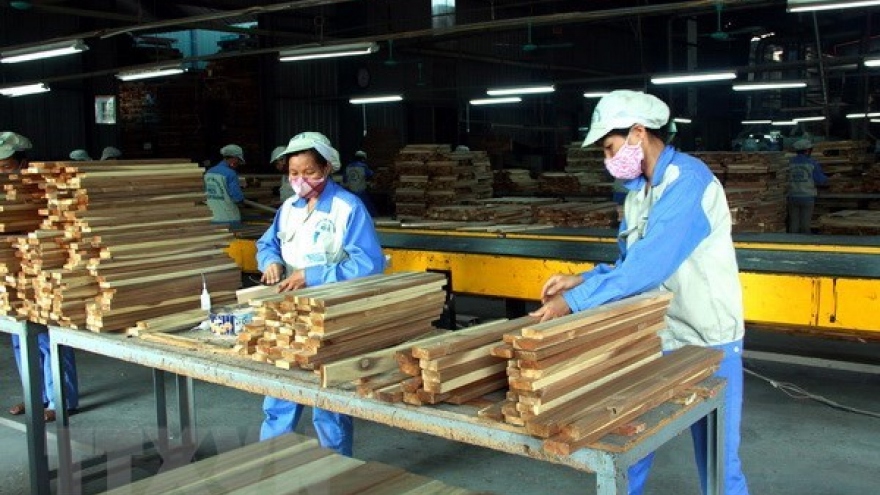Vietnam’s export turnover sets new record
Vietnam’s export turnover is expected to set a new record in 2018, estimated at US$244 billion, up US$30 billion compared to 2017.
 |
In the first 10 months of 2018, the export turnover hit over US$200 billion, up 14.2% against the same period last year, according to the General Statistics Office (GSO).
Export revenue of the domestic economic sector rose 16.8%, reaching US$56.82 billion, while that of the foreign direct investment (FDI) sector expanded 13.2% to US$143.45 billion, up 13.2%, accounting for 71.6% of the total turnover.
Many key exports gained high growth, with computers, electronics and components(up 13.9%), textiles and garments (over 17%), and machinery, equipment and spare parts (over 28%).
Growth was also seen in the earnings from farm produce, including fruits and vegetables (up 14.4% to US$3.3 billion), coffee (1.1% to US$3 billion) and rice (up 16.1% to US$2.6 billion).
However, crude oil export in the period fell in both value and volume compared to last year, reaching only US$1.8 billion, down 24.8% in value and 45.4% in volume.
According to Tran Thanh Hai, deputy head of the Export-Import Department under the Ministry of Industry and Trade, Vietnam is well exploiting traditional export markets and seeking new ones.
More and more Vietnamese firms are paying attention to taking advantage of opportunities from free trade agreements (FTA) that Vietnam has signed.
According to the Ministry of Agriculture and Rural Development, the export turnover of the group of agricultural products is forecast to exceed the goal of US$40 billion. It is attributed to the rapid and sustainable growth of agricultural production nationwide.
Vietnam is the 15th largest exporter of agricultural products in the world.
Minister of Industry and Trade Tran Tuan Anh said Vietnamese firms have worked hard to actively build brand names and promoting their products, contributing to raising the position of Vietnamese goods in international markets, towards increasing export in the time to come.
He affirmed that more efforts would be made to accelerate administrative reform, remove difficulties, and cut down business conditions, especially simplify export procedures, thus supporting exporters.

